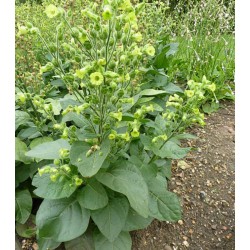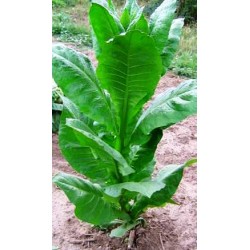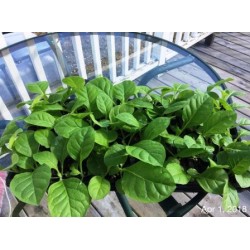
What is Ceremonial tobacco?
Ceremonial tobacco (also called Indigenous Tobacco) is not about recreation or habit—it is about connection: to the Creator, to the land, to ancestors, and to the community.
For thousand of years, Tobacco has held a place of deep cultural, spiritual, and ceremonial importance.
A Sacred Plant with Ancient Roots
The story of ceremonial tobacco begins with Nicotiana rustica, a powerful and highly concentrated species of tobacco native to the Americas. Long before colonization, this plant was grown, harvested, and prepared with care for spiritual use by many Indigenous nations.
There is Scientific evidence that tobacco was cultivated 3000 BCE. Tribes and nations from the both North and South Americas each developed their own protocols, prayers, and ceremonies around the plant.
The Cultural Meaning of Ceremonial Tobacco
For many Indigenous communities, ceremonial tobacco represents truth, respect, and communication with the spirit world.
It may be offered in different ways:
-
As a gift: Offered to Elders, knowledge keepers, or the land when asking for teachings or guidance.
-
In prayer: Burned in a sacred fire or pipe to carry prayers to the Creator.
-
In ceremony: Used in community rituals, seasonal gatherings, or rites of passage.
For gratitude: Given as an offering before a hunt, harvest, or important work.
Ceremonial vs. Commercial Tobacco
It’s important to draw a clear line between ceremonial tobacco and commercial tobacco—such as the type used in cigarettes.
| Ceremonial Tobacco | Commercial Tobacco |
|---|---|
| Traditionally grown (often Nicotiana rustica) | Mass-produced (usually Nicotiana tabacum) |
| Grown and harvested with spiritual intention | Industrial farming for profit |
| Used in prayer, offerings, and ceremony | Used for recreational consumption |
| Untreated, pure leaf | Often processed with additives and chemicals |
Ceremonial tobacco is not smoked for habit or intoxication. It is treated with reverence, handled with care, and often accompanied by prayers or songs.
Key Takeaway
Ceremonial tobacco is sacred. It has a history older than modern farming, and its use carries responsibilities. Understanding its meaning begins with listening to and respecting the Indigenous communities that have cared for it for generations.




Leave a Comment